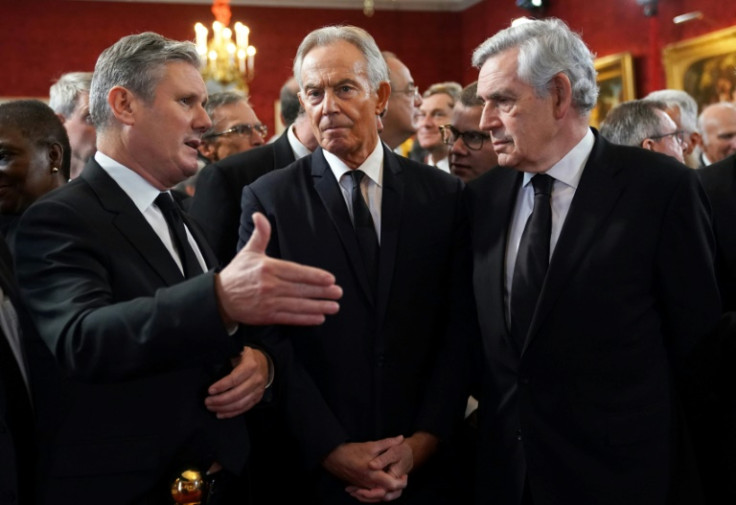UK's Starmer To Insist Labour Fit To Govern As Crisis Rocks Govt

Labour leader Keir Starmer will argue Tuesday his once-fractured party is ready to lead Britain out of economic crisis under the ruling Conservatives.
At the main opposition party's annual conference, Starmer will say the Tories and new Prime Minister Liz Truss have "lost control of the British economy".
He will also insist that Labour -- out of power for 12 years and dogged in recent times by ideological infighting -- is now the party of "sound money", according to his office.
His set-piece speech comes as the UK grapples with decades-high inflation, an imminent recession and the pound crashing to unprecedented lows against the US dollar this week.
The pound's plunge has been blamed on a mini-budget unveiled Friday by finance minister Kwasi Kwarteng, which cut a host of taxes -- including for the highest earners -- and raised government borrowing.
Despite the gloomy economic picture, Labour's rank-and-file are gathering in upbeat mood. The party appears more unified than at any point in recent years and has a comfortable lead in the polls.
"I feel it's very positive here -- we are united," Mary Stiles, 75, a former councillor from central England, told AFP.
"We know we can do it," she said of retaking power. "We've got to do what (former British prime minister) Tony Blair did in 1997: we've got to get back in and change things."
Starmer, 60, took over the Labour leadership in April 2020 from the radical Jeremy Corbyn.
He struggled to break through with the British public during the Covid pandemic. But the financial crisis, and the Tories' problems under the scandal-plagued Boris Johnson, have revived Labour.
The latest poll by Survation suggested Labour would win a 56-seat parliamentary majority if a general election were held today, comfortably overturning the majority of 80 that Johnson won against Corbyn in 2019.
The next election is not due until January 2025 at the latest.
Starmer has taken Labour back to the centre ground after the gaping divisions between its left and right wings seen under Corbyn.
In an unusual move, attendees at this year's conference in Liverpool, northwest England, on Sunday sang the national anthem "God Save the King", beneath images of the late queen Elizabeth II.
Fears the rendition would be marred by boos or heckles from the Corbyn-leaning left proved unfounded.
In his speech, Starmer will hail that as evidence Labour is once again "the political wing of the British people", in a clear nod to Blair.
Starmer has vowed
not to reverse the Conservatives' "hard Brexit" deal, which took Britain out of the European Union's single market and customs union.
He has also tried to steer clear of culture war issues, revolving around gender and racial politics, instead sticking to core themes around the economy, health care and crime.
He will promise a new "green prosperity plan" that prioritises economic growth alongside tackling climate change.
But bubbling under is disquiet from the party's traditional union backers about support for public and private sector workers on strike over pay.
Starmer has barred his top team from appearing on picket lines and been less supportive of the walkouts than some on the party's left.
The moves have prompted criticism from some unions and predictions they could now cut some of the millions of pounds they give the party annually.
But an uneasy truce appears to have prevailed during the conference, with union leaders curbing their criticism.
Some party members voiced support for Starmer's stance on the unions, arguing it is necessary to show Labour is ready to govern again.
"The grown-ups are back in town," declared Angela Briggs, 69, a retired head teacher from Oxfordshire, in southern England, attending the conference for the first time.


© Copyright AFP 2024. All rights reserved.





















